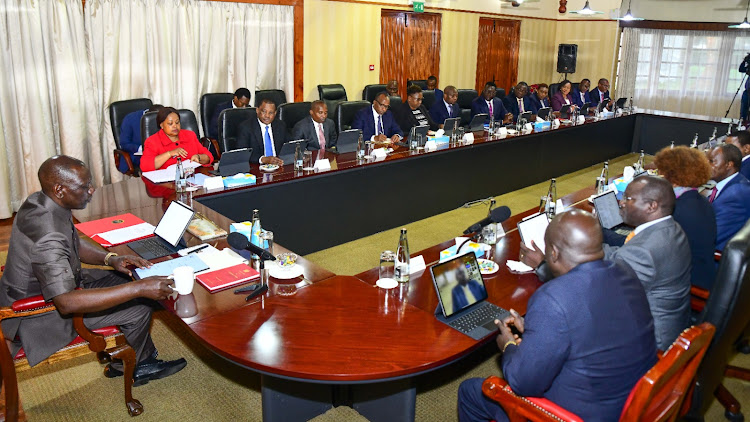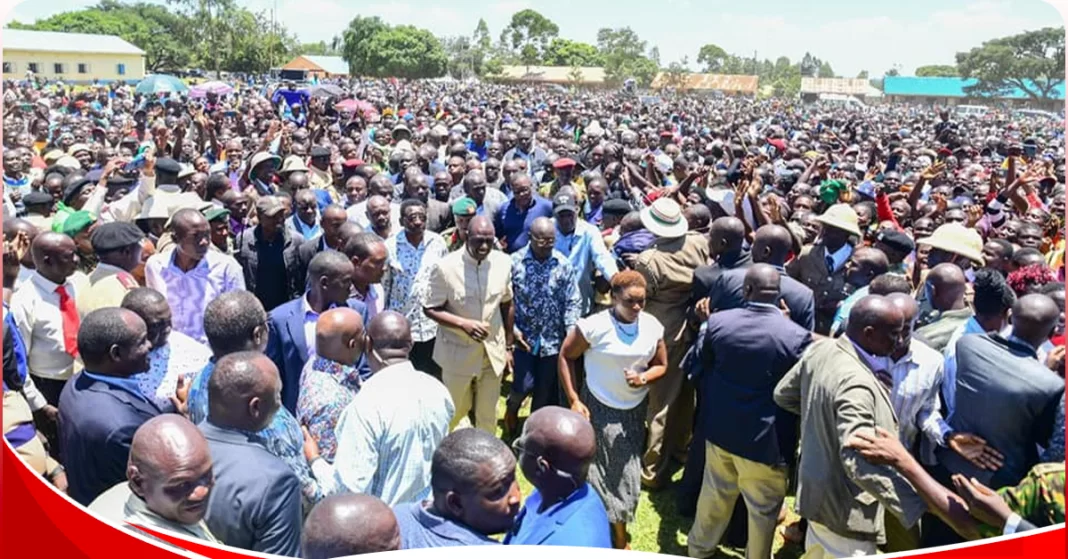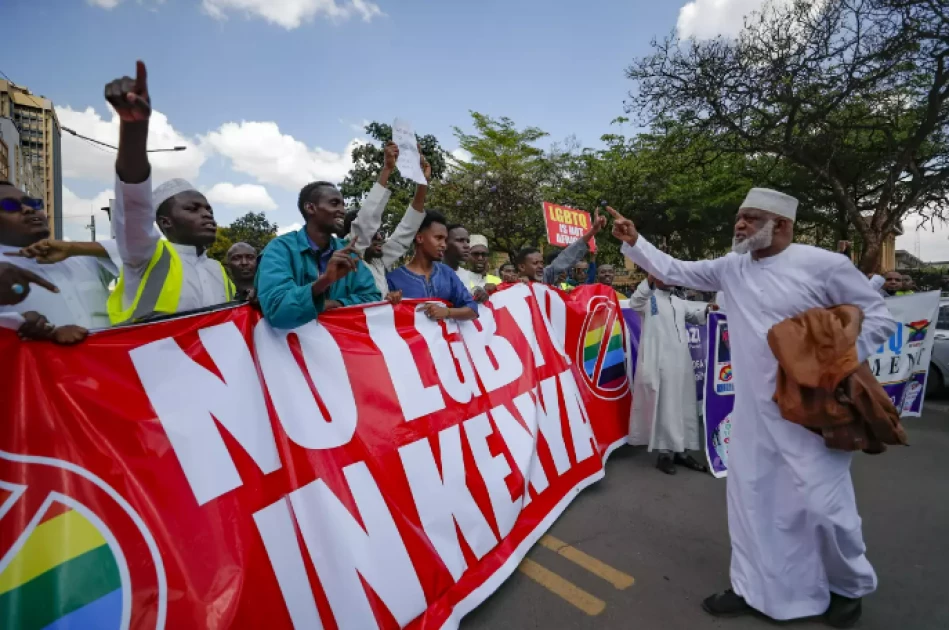PRESIDENT RUTO’S MAJOR CHANGES TO CABINET SECRETARIES


President William Ruto convened a pivotal Cabinet meeting at State House, marking a potential watershed moment with the imminent abolition of seven ministries and a sweeping reorganization across various government entities. Sources familiar with the matter revealed that this restructuring will involve merging several departments and dissolving numerous state corporations.
Ahead of the meeting, President Ruto held a private discussion with his deputy, Rigathi Gachagua, followed by an apprehensive gathering of Cabinet secretaries, some of whom face uncertain futures due to the impending changes.
Under the proposed overhaul, the current 22 ministries will be streamlined to 15, with revised portfolios including Defence, Interior, Energy, Health, Education, National Treasury, Agriculture, Livestock and Irrigation, Foreign Affairs and East African Community, Labour and Public Service, and Affirmative Action, Youth, and Gender. New ministries such as Water, Forest, and Environment; Tourism, Culture, Youth, and Sports; Infrastructure, Lands, Housing, Public Works, and Roads; and Economic Planning, Trade, SMEs, Cooperatives, Delivery Unit, ICT, and the Attorney General will also be established.
The restructuring aims to address fiscal challenges, notably the ballooning wage bill, which has strained domestic revenue. President Ruto’s decision aligns with calls from Generation Z activists for a leaner government structure and heightened efficiency.
Defence Cabinet Secretary Aden Duale affirmed that the National Treasury has been tasked with reviewing parastatals with overlapping mandates, proposing relocations to parent ministries to streamline operations and enhance service delivery. He emphasized the president’s commitment to fiscal discipline and reducing government expenditure.
In a post-meeting statement, President Ruto emphasized the need for substantial budgetary adjustments to accommodate revised priorities amidst the withdrawn Finance Bill’s implications. He assured the public of a robust plan to sustain key national programs while managing fiscal realities effectively.
The Cabinet also addressed ongoing security concerns and commended security agencies for their professionalism in maintaining stability amid recent challenges. President Ruto underscored the government’s commitment to upholding the rule of law, promising accountability for any misconduct by security personnel.
Furthermore, discussions centered on the implementation of the Kenya Urban Improvement Project, focusing on upgrading the Nairobi Commuter Rail and enhancing infrastructure in the Nairobi Metropolitan Area.
















